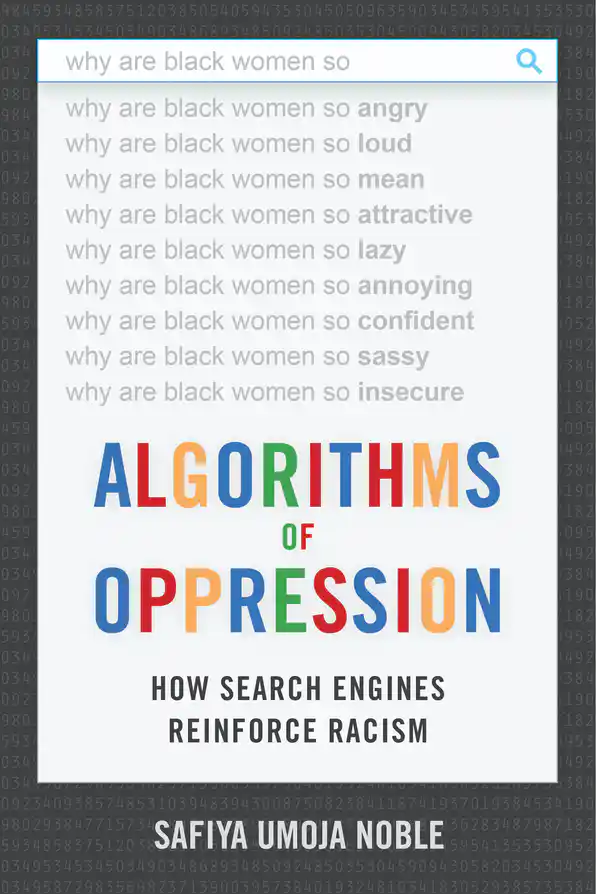
Here's a good pub-quiz trivia question - which Oscar-winning Actors have appeared in Doctor Who? It's the sort of thing that you can either wrack your brains for, or construct a SPARQL Query for WikiData. I was bored and asked ChatGPT. The new Omni model claims to be faster and more accurate. But, in my experience, it's wrong more than it is right and is a bit more racist. I asked "Which Oscar …
Continue reading →

I've been reading lots of books about race, justice, and history. One of the things which confused me when I started this journey was the notion that race is a construct. But then I started reading about how Blumenbach literally invented the concept of distinct human races. And about how the discredited "Science" of race is making a comeback. And then about the Philosophy of Race weaves its…
Continue reading →

This is selection of essays looking - as the title suggests - at the relationship between Shakespeare and immigration. It's always worth re-examining our relationship with "classic" works. There are some very obvious immigration issues in Shakespeare - and this book does a plausible job of uncovering some of them. It also takes us through some of the issues facing Elizabethan England - for…
Continue reading →

Ira Aldridge -- a black New Yorker -- was one of nineteenth-century Europe's greatest actors. By the time he began touring in Europe he was principally a Shakespearean actor, playing such classic characters as Shylock, Macbeth, Richard III, and King Lear. Although his frequent public appearances made him the most visible black man in the world by mid-nineteenth century, today Aldridge tends to…
Continue reading →

The Cambridge Companion to Shakespeare and Race shows teachers and students how and why Shakespeare and race are inseparable. Moving well beyond Othello, the collection invites the reader to understand racialized discourses, rhetoric, and performances in all of Shakespeare's plays, including the comedies and histories. Race is presented through an intersectional approach with chapters that…
Continue reading →

The death of George Floyd and subsequent Black Lives Matter protests have made clear to everyone the vicious reality of racism that persists today. Many of those privileged enough to be distanced from racism are now having to come to terms with the fact that they continue to prosper at the detriment of others. Having spent the last four years researching, writing, and speaking about the…
Continue reading →

The world is a complex place. It is tempting to enforce simplicity upon it to make things easier for computers. Gender is a boolean, no one is older than 99, all text flows left to right, and names are always in English. That makes it nice and easy for us to write computer systems - and who cares if it is dehumanising? Recently, I tried to register with phone company EE. When someone asks for…
Continue reading →

This is an excellent and illuminating documentary of the state of algorithmic bias. If you've read recent books like Algorithms of Oppression and Race After Technology - you probably won't find anything new. But it is nice seeing academics in their natural habitats. It really helps to personalise the problems by placing them in social context. Some of the arguments are simplified a little for…
Continue reading →

When it comes to racial justice, how do we transform demonstrations of support into real and meaningful change? With intellectual rigour and razor-sharp wit, Emma Dabiri cuts through the haze of online discourse to offer clear advice. This was a refreshing and necessary book to read. Refreshing because so much of the discourse on race is driven by the USA's cultural hegemony - whereas this…
Continue reading →

Some background reading. Skip if you're familiar with fonts. A font file contains a list of characters (usually letters, numbers, and punctuation) and glyphs (the drawn representation of that character). It is, of course, a lot more complicated than that. Each character has a codepoint which is represented in hexadecimal. For example, U+0057 is the Latin letter Capital W, U+20AC is the Euro…
Continue reading →

Run a Google search for “black girls”—what will you find? “Big Booty” and other sexually explicit terms are likely to come up as top search terms. But, if you type in “white girls,” the results are radically different. The suggested porn sites and un-moderated discussions about “why black women are so sassy” or “why black women are so angry” presents a disturbing portrait of black womanhood in m…
Continue reading →

You’re British. Your parents are British. Your partner, your children and most of your friends are British. So why do people keep asking where you’re from? We are a nation in denial about our imperial past and the racism that plagues our present. Brit(ish) is Afua Hirsch’s personal and provocative exploration of how this came to be – and an urgent call for change. Yes! This is the book I've bee…
Continue reading →











